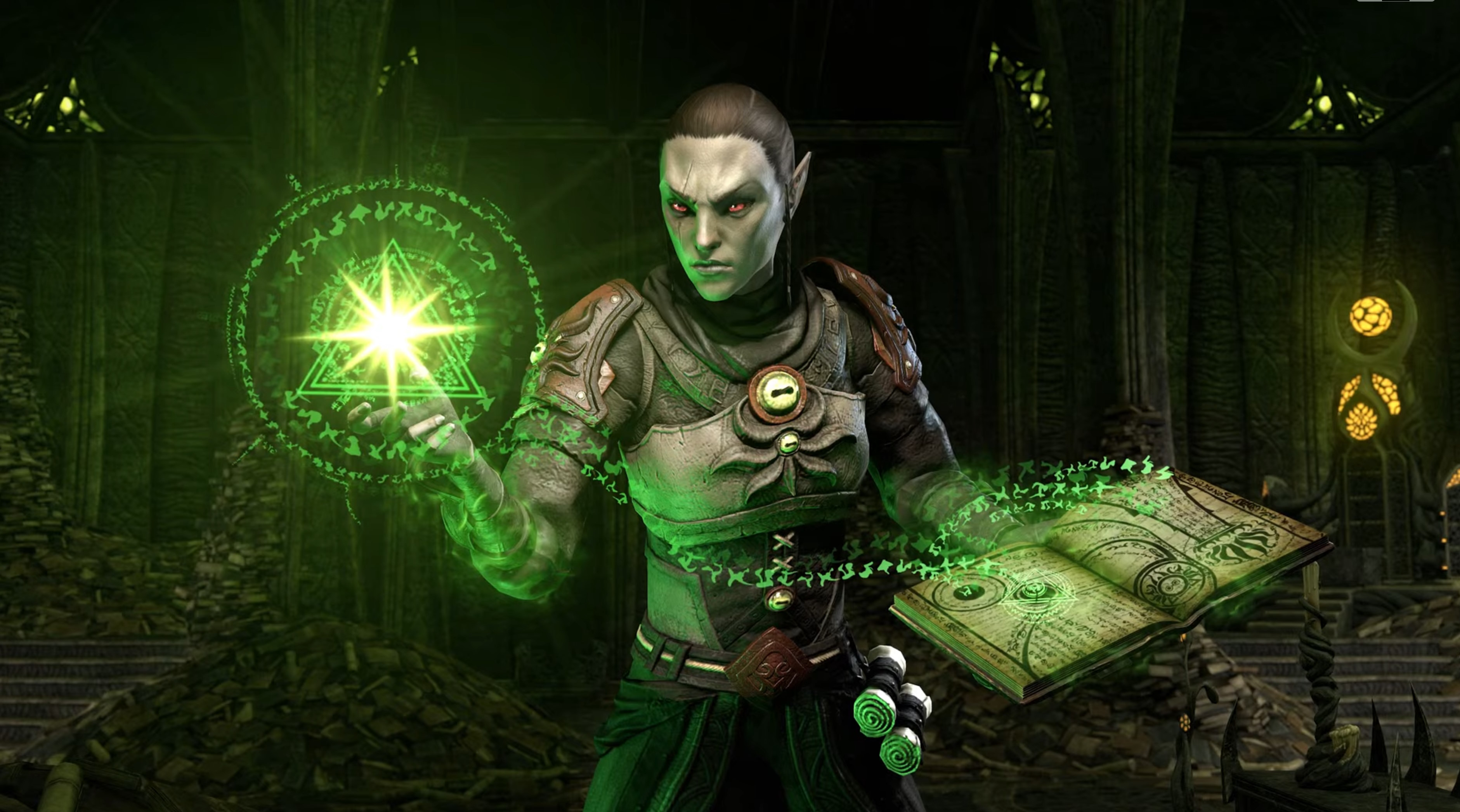'I sat with Todd Howard for about 3 months': The Elder Scrolls Online devs talk working with Bethesda to make sure they don't break the lore of future games
Keeping the scrolls in good nick.

The Elder Scrolls Online—an MMO that's approaching its first decade—has always charmed me because of how it's able to represent, in a way, miniature versions of the setting's different continents and stylings. Especially since it can do that at a more rapid pace than the mainline series, which had its last proper entry 13 years ago.
When I sat down with the game's creative director Rich Lambert, as well as Zenimax's studio director, Matt Frior, we got into talking about the process of negotiating Todd Howard—and the process of adding to the series' lore without breaking it for future entries (whenever they may come).
When asked if they were worried with (as I put it) running out of road, Frior noted that issue is something the devs have kept in mind day one: "When I initially set up the project, I sat with Todd Howard for about three months, to figure out how to best not run into that situation. So we made the decision to put the game 700 to 1,000 years before the other mainline Elder Scrolls games.
"That was the least known part of lore—there wasn't a lot of lore there. And Todd wanted us to have a lot of freedom to tell the stories that we wanted to tell, without encroaching too much on stuff that had already been done, because he thought that would be boring."
As Lambert then puts it, "we also get a lot of latitude, right? Over the years, we've developed this really awesome working relationship with [Bethesda], and they understand what we're doing, and they trust what we're doing … we get to go and revisit old places, put our own spin on that, we get to create new lore."
New lore like, say, a whole new Daedric prince in the form of Ithelia, an addition to perhaps the most beloved part of the game's canon. Ithelia was first introduced to the MMO in the Necrom expansion last year—and will be getting some more development in The Gold Road: "We liked the idea of an antithesis to Hermaeus Mora—they're all about stability, and Ithelia is chaos … the team had a lot of fun coming up with her."
Lambert also shares an anecdote about working on the Dark Brotherhood quest lines with Bethesda's Emil Pagliarulo—who worked on the famous quests back in Oblivion: "I worked on Oblivion as well, so it was really easy to go like hey, Emil, can you read this? We sent him like a three page doc, and I sat down with him and went over it, and he was like 'let me think about this for a bit.'
The biggest gaming news, reviews and hardware deals
Keep up to date with the most important stories and the best deals, as picked by the PC Gamer team.
"He sent me seven pages of information back—like here's what you got right, here's what you got wrong, here's the nuance behind all this stuff. So that's kind of the relationship we have, we can pitch ideas."
I'm honestly just glad to know that the series has stewards keeping its world alive while Bethesda takes its time—ESO is downright successful and has an invested community, despite coming out at a time where a bunch of would-be WoW killers tried and failed to make their MMO the next big thing. It's carved out its own place in a very competitive ecosystem, receiving its 43rd major update August 19.

Harvey's history with games started when he first begged his parents for a World of Warcraft subscription aged 12, though he's since been cursed with Final Fantasy 14-brain and a huge crush on G'raha Tia. He made his start as a freelancer, writing for websites like Techradar, The Escapist, Dicebreaker, The Gamer, Into the Spine—and of course, PC Gamer. He'll sink his teeth into anything that looks interesting, though he has a soft spot for RPGs, soulslikes, roguelikes, deckbuilders, MMOs, and weird indie titles. He also plays a shelf load of TTRPGs in his offline time. Don't ask him what his favourite system is, he has too many.

